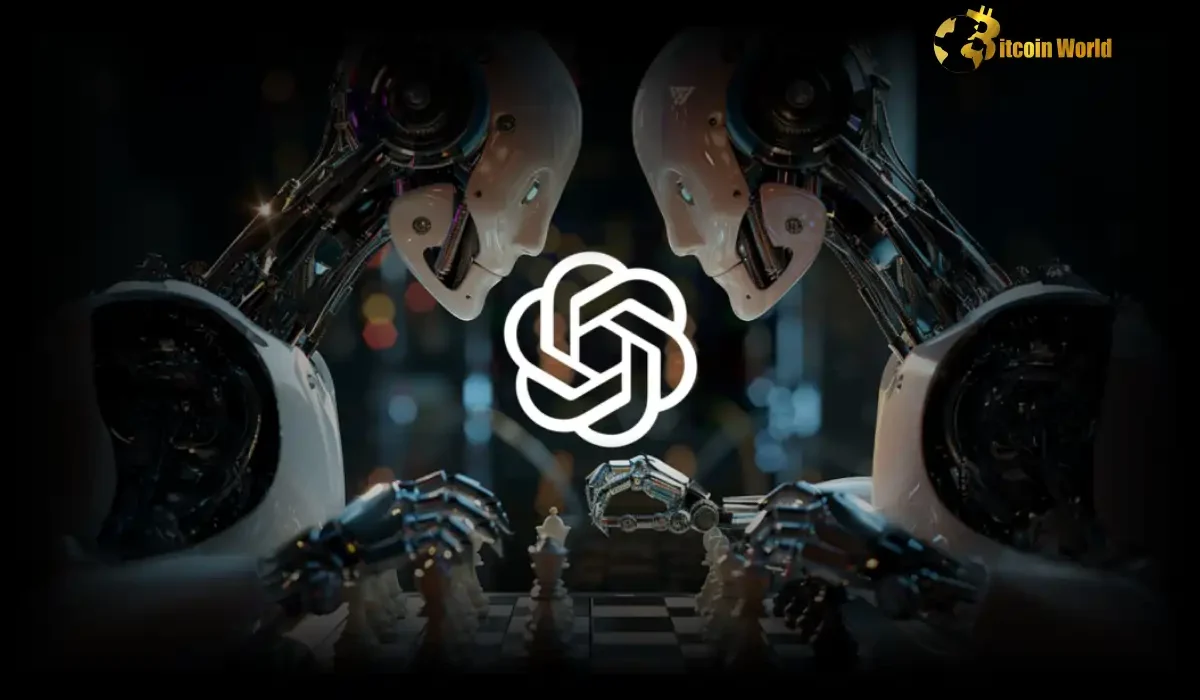
Since its explosive debut in November 2022, ChatGPT, OpenAI’s ingenious text-generating AI chatbot, has captivated the world. Initially conceived as a productivity booster for crafting essays and code from brief text prompts, it has morphed into a colossal force, boasting 300 million weekly active users. The year 2024 marked a monumental phase for OpenAI, witnessing a landmark partnership with Apple for its generative AI suite, Apple Intelligence, the unveiling of GPT-4o with groundbreaking voice capabilities, and the eagerly awaited launch of Sora, its text-to-video marvel. Yet, amidst triumphs, OpenAI navigated internal storms, including the departures of influential figures like co-founder Ilya Sutskever and CTO Mira Murati. Legal battles also emerged, with copyright infringement allegations from media giants and an injunction from Elon Musk challenging OpenAI’s for-profit transition. As we step into 2025, OpenAI confronts the narrative of losing ground in the fierce AI race to Chinese contenders like DeepSeek. The company is actively fortifying its ties with Washington while pursuing an ambitious data center venture and reportedly laying the groundwork for a historic funding round. Delve into the comprehensive timeline of ChatGPT’s evolution, product milestones, and answers to frequently asked questions below.
ChatGPT’s Latest Updates: A Timeline of Innovation
Stay up-to-date with the rapid evolution of ChatGPT. Here’s a chronological look at the key updates and feature releases that have shaped this groundbreaking AI chatbot throughout the past year and into 2025:
| Month |
Update |
| March 2025 |
- Image Generation Freedom: OpenAI removed restrictions on ChatGPT’s image generation, now allowing depictions of public figures, symbols, and racial features, evolving its content moderation policy.
- Adopting Anthropic’s MCP: OpenAI plans to integrate Anthropic’s Model Context Protocol (MCP) across its products to enhance AI response accuracy and data linking.
- Copyright Concerns Rise: Viral Studio Ghibli-style images from ChatGPT’s generator spark copyright debates, with temporary usage limits due to GPU demands.
- Revenue Surge Expected: OpenAI projects a revenue tripling to $12.7 billion in 2025, driven by paid AI software performance, anticipating positive cash flow by 2029.
- Image Generation Upgrade: ChatGPT upgraded its image generation using GPT-4o for direct image generation and editing, initially for Pro plan subscribers.
- Leadership Changes: Brad Lightcap to lead global expansion as COO, Mark Chen becomes Chief Research Officer, and Julia Villagra named Chief People Officer.
- Advanced Voice Assistant: ChatGPT’s voice assistant gains real-time, personable conversation capabilities with fewer interruptions.
- India Expansion Talks: OpenAI and Meta discuss collaborations with Reliance in India, exploring ChatGPT distribution and data center development.
- Privacy Complaint in Europe: Noyb files a privacy complaint over ChatGPT’s defamatory hallucinations and inaccurate personal data.
- Improved AI Models: OpenAI upgrades transcription and voice-generating AI models with ‘gpt-4o-mini-tts’ and ‘gpt-4o-transcribe’ for enhanced speech and accuracy.
- o1-pro Model Launch: OpenAI introduces o1-pro, a more powerful ‘reasoning’ AI model for select developers, priced higher than GPT-4.5.
- AI Reasoning History: OpenAI research lead Noam Brown suggests AI ‘reasoning’ models could have been developed decades earlier with the right approach.
- Creative Writing AI: Sam Altman highlights a new AI model excelling in creative writing, showcasing metafictional storytelling.
- AI Agent Tools for Businesses: OpenAI launches Responses API tools for businesses to build custom AI agents for tasks like web searches and file navigation.
- Specialized AI ‘Agents’ Pricing: Rumored pricing for specialized AI agents ranges from $2,000 to $20,000 monthly, targeting various professional applications.
- Code Editing Feature: ChatGPT’s macOS app now allows direct code editing within developer tools like Xcode and VS Code.
- User Growth Surge: ChatGPT’s weekly active users doubled in under 6 months, reaching 300 million by December 2024 and 400 million by February 2025.
|
| February 2025 |
- o3 Model Cancellation: OpenAI cancels o3, focusing on a unified GPT-5 model integrating o3 technology.
- Energy Efficiency: Analysis suggests ChatGPT’s energy consumption per query is lower than previously estimated, around 0.3 watt-hours with GPT-4o.
- Enhanced ‘Thought Process’ Transparency: OpenAI reveals more of o3-mini’s reasoning steps in ChatGPT responses.
- Web Search Without Login: ChatGPT web search now accessible without login, though mobile app use still requires it.
- ‘Deep Research’ Agent: OpenAI unveils a new AI agent for in-depth research, designed for complex information analysis.
- AI Persuasion Testing: OpenAI used Reddit’s r/ChangeMyView to test and measure the persuasive abilities of its AI models.
- o3-mini Model Launch: OpenAI launched o3-mini, a ‘reasoning’ AI model positioned as powerful and affordable.
- Mobile User Demographics: Report indicates ChatGPT mobile users are predominantly male (85%) and young (over half under 25).
- ChatGPT Gov for US Agencies: OpenAI launched ChatGPT Gov, tailored for US government agencies with enhanced security and compliance features.
- Teenage Schoolwork Usage: Pew Research Center survey shows increased ChatGPT usage among teens for schoolwork, doubling in two years.
- Operator Data Retention: OpenAI may store deleted Operator data for up to 90 days, longer than ChatGPT’s 30-day retention.
- Operator AI Agent Launch: OpenAI previews Operator, an AI agent capable of autonomous web browsing and task completion like booking and shopping.
- Operator Preview for Pro Users: Hints suggest Operator might be previewed for $200/month Pro plan users.
- Phone Number Sign-ups: OpenAI tests phone number-only sign-ups for ChatGPT in the US and India.
- Reminder Feature: ChatGPT introduces a beta ‘tasks’ feature for setting reminders and recurring tasks.
- Customizable Traits: New ChatGPT feature allows users to assign traits like ‘chatty’ or ‘Gen Z’ to the chatbot.
|
| January 2025 |
- Dublin Tourism Partnership: Dublin City Council partners with OpenAI to use GPT-4 for personalized tourist itineraries.
- Law Firm Billing Controversy: Law firm criticized for using ChatGPT to justify a six-figure legal bill.
- Bizarre Bug: ChatGPT experienced a bug causing nonsensical answers for several hours, later resolved by OpenAI.
- Match Group Partnership: Match Group announces OpenAI deal, using ChatGPT for employee tasks as part of a $20M+ AI investment.
- ‘Memory’ Controls: ChatGPT tests ‘memory’ controls, allowing users to manage what the chatbot remembers across conversations.
- ‘Temporary Chat’ Feature: OpenAI rolls out ‘Temporary Chat’ for conversations without memory or chat history.
|
| December 2024 |
- Search Misleading Vulnerability: Research reveals ChatGPT Search can be tricked into generating misleading summaries by manipulating website text.
- AGI Definition: Microsoft and OpenAI reportedly define AGI internally based on OpenAI achieving $100 billion in profit.
- Safety Policy Training: OpenAI trained o1 and o3 models to ‘think’ about and align with its safety policy.
- New o3 Reasoning Models: OpenAI announces o3 and o3-mini, successors to the o1 reasoning model family, preview available for researchers.
- Landline ChatGPT Access: OpenAI launches a 1-800 number for landline ChatGPT access with 15 minutes of free calling for US users.
- Search for Free Users: ChatGPT Search expands to free, logged-in users and integrates with Advanced Voice Mode.
- Outage Cause: OpenAI blames a massive ChatGPT outage on a ‘new telemetry service’ deployment issue.
- Santa Voice Mode: Limited-time ‘Santa Mode’ voice available for ChatGPT users during December.
- Vision for Advanced Voice Mode: Real-time video capabilities added to ChatGPT’s Advanced Voice Mode for paid subscribers.
- Outage Impact: ChatGPT and Sora experience a major outage, unrelated to Apple Intelligence rollout.
- Canvas Rollout: Canvas, OpenAI’s collaboration interface, rolls out to all users with Python code integration.
- Sora Sign-up Pause: OpenAI pauses Sora sign-ups due to high demand, slowing down video generations.
- Sora Release for Paid Users: OpenAI releases Sora for ChatGPT Plus and Pro subscribers, offering video generation based on text and images.
- ChatGPT Pro Subscription: OpenAI launches $200/month ChatGPT Pro with unlimited access to all models including the full o1.
- 12 Days of Reveals: OpenAI announces ‘12 Days of OpenAI’ with daily product launches and demos.
- User Milestone: ChatGPT surpasses 300 million weekly active users, according to Sam Altman.
|
| November 2024 |
- ‘David Mayer’ Crash: Users discovered the name ‘David Mayer’ crashed ChatGPT, possibly due to digital privacy requests.
- Ad Exploration: OpenAI considers ads business model, though no active plans, despite past statements against ads.
- Canadian News Lawsuit: Canadian media companies sue OpenAI for copyright infringement.
- GPT-4o Upgrade: GPT-4o model updated with enhanced creative writing and file handling capabilities.
- Advanced Voice Mode on Web: ChatGPT’s Advanced Voice Mode expands to web browsers for paid subscribers.
- Desktop App Code Reading: ChatGPT’s macOS app can read code from developer apps like VS Code and Xcode.
- Safety Researcher Exit: Lead safety researcher Lilian Weng departs OpenAI.
- Election News Guidance: ChatGPT directed 2M users to trusted news sources for election information, limiting candidate image generation.
- Chat.com Acquisition: OpenAI acquires Chat.com domain name, redirecting it to ChatGPT.
- Meta Hardware Lead Hire: Former Meta hardware lead for Orion joins OpenAI to lead robotics and consumer hardware.
- Apple Settings Upgrade: Apple users will soon be able to upgrade to ChatGPT Plus within the Settings app.
|
| October 2024 |
- Compute Capacity Delay: Sam Altman cites lack of compute capacity as delaying product releases like vision capabilities and Sora.
- Google Search Challenger: OpenAI launches ChatGPT Search, powered by GPT-4o, as a Google Search competitor.
- Advanced Voice Mode on Desktop: Advanced Voice Mode rolls out to ChatGPT desktop apps for macOS and Windows.
- AI Chip Planning: Reports suggest OpenAI plans to build its first in-house AI chip by 2026.
- Chat History Search: ChatGPT users can now search through their chat histories on the web.
- Apple Intelligence Integration: ChatGPT integrates with Apple Intelligence in iOS 18.1 update.
- Orion Model Denial: OpenAI denies plans to release an ‘Orion’ AI model in 2024.
- Windows App Preview: OpenAI previews a dedicated Windows app for ChatGPT for paid subscribers.
- Hearst Content Deal: OpenAI inks content deal with Hearst, gaining access to stories from publications like San Francisco Chronicle.
- ‘Canvas’ Interface: ChatGPT introduces ‘Canvas,’ a new interface for writing and coding projects with real-time editing.
- Funding Round: OpenAI raises $6.6B in funding, valuing the company at $157B.
- Realtime API for Developers: Dev Day unveils Realtime API for developers to build real-time speech-to-speech experiences.
|
| September 2024 |
- Price Increase Plan: OpenAI considers raising ChatGPT subscription price to $44 by 2029.
- Leadership Exit: CTO Mira Murati and other research leaders leave OpenAI, followed by leadership transition plans.
- Advanced Voice Mode Rollout: Advanced Voice Mode rolls out to more paid customers with new voices and design.
- Graphing Calculator ChatGPT: YouTuber demonstrates running ChatGPT on a modified TI-84 graphing calculator.
- o1 Model Launch: OpenAI announces o1, a new AI model family with self-fact-checking capabilities.
- Bomb Instructions Jailbreak: Hacker tricks ChatGPT into providing instructions for making explosives.
- Corporate User Milestone: OpenAI reaches 1 million paid users for its corporate ChatGPT offerings.
- VW ChatGPT Assistant in US: Volkswagen rolls out its ChatGPT-integrated voice assistant to US vehicles.
|
| August 2024 |
- Condé Nast Content Deal: OpenAI partners with Condé Nast for content from publications like The New Yorker in ChatGPT.
- Advanced Voice Mode Impressions: Initial impressions highlight Advanced Voice Mode as a convincing step towards AI-powered assistants.
- Election Influence Operation Shutdown: OpenAI shuts down Iranian influence operation using ChatGPT for election content.
- GPT-4o Quirks: OpenAI finds GPT-4o exhibiting strange behaviors like voice mimicry and random shouting.
- Mobile App Revenue Record: ChatGPT’s mobile app revenue sees its biggest month yet after GPT-4o launch.
- Cheating Detection Tool Debate: OpenAI debates releasing a watermarking tool to detect ChatGPT-generated text for students.
|
| July 2024 |
- Advanced Voice Mode Rollout Begins: ChatGPT’s advanced Voice Mode starts rolling out to a limited group of Plus users.
- SearchGPT Prototype: OpenAI announces SearchGPT, a search prototype to compete with Google.
- Loss Report: Report claims OpenAI could lose $5 billion this year due to operational costs.
- GPT-4o Mini Release: OpenAI unveils GPT-4o mini, a smaller, faster, and cheaper AI model.
- Los Alamos Partnership: OpenAI partners with Los Alamos National Laboratory for bioscience research using AI.
|
| June 2024 |
- CriticGPT Model: OpenAI creates CriticGPT to find errors in GPT-4 code output for model improvement.
- TIME Content Deal: OpenAI partners with TIME, integrating its content into ChatGPT.
- Voice Mode Delay: ChatGPT’s new Voice Mode launch delayed to July due to lingering issues.
- Mac App Release: ChatGPT app for macOS becomes available to all users.
- Apple ChatGPT Integration: Apple announces ChatGPT integration into Siri and iOS 18 apps.
- Scarlett Johansson Testimony Invite: House subcommittee invites Scarlett Johansson to testify about ‘Sky’ voice controversy.
- Outages: ChatGPT experiences two outages in a single day.
|
| May 2024 |
- Content Deals: The Atlantic and Vox Media ink content deals with OpenAI for ChatGPT integration.
- PwC Enterprise Deal: OpenAI signs 100K PwC workers to ChatGPT Enterprise, becoming its largest customer.
- GPT-4 Successor Training: OpenAI announces it has begun training GPT-4’s successor model.
- Board ChatGPT Discovery: Former OpenAI director claims the board learned about ChatGPT on Twitter.
- Mobile Revenue Spike: ChatGPT mobile app revenue spikes after GPT-4o launch.
- Sky Voice Removal: OpenAI to remove ChatGPT’s Scarlett Johansson-like ‘Sky’ voice after controversy.
- File Uploads from Cloud Services: ChatGPT allows file uploads from Google Drive and Microsoft OneDrive.
- Reddit Data Deal: OpenAI inks deal to train AI on Reddit data.
- GPT-4o ‘Omni’ Model Debut: OpenAI debuts GPT-4o ‘omni’ model with enhanced voice and vision capabilities.
- Opt-Out Tool for Creators: OpenAI to build tool for content creators to opt out of AI training.
- AI Porn Exploration: OpenAI explores allowing AI porn with a new NSFW policy.
- Stack Overflow Partnership: OpenAI partners with Stack Overflow for developer feedback and data access.
|
| April 2024 |
- Newspaper Copyright Lawsuit: US newspapers sue OpenAI and Microsoft for copyright infringement.
- Financial Times Deal: OpenAI inks content licensing deal with Financial Times.
- Tokyo Hub Opening: OpenAI opens Tokyo hub, adds GPT-4 model optimized for Japanese.
- Enterprise Pitch: Sam Altman pitches ChatGPT Enterprise to Fortune 500 companies.
- GPT-4 Turbo Update: OpenAI releases ‘more direct, less verbose’ version of GPT-4 Turbo for paid users.
- Account-Free ChatGPT: ChatGPT no longer requires an account, but with limited features and stricter policies.
|
| March 2024 |
- GPT Store Spam: OpenAI’s GPT Store is found to be filling up with spam and potentially infringing GPTs.
- NYT Response to ‘Hacking’ Claims: The New York Times responds to OpenAI’s claims of ‘hacking’ in copyright lawsuit.
- Artist Compensation Question: OpenAI VP dodges question on compensating artists for training data use.
- Electricity Consumption Report: Report estimates ChatGPT uses massive amounts of electricity daily.
- Read Aloud Feature: ChatGPT adds ‘Read Aloud’ feature for web and mobile apps.
|
| January 2024 |
- GPT Invocation in Chats: ChatGPT paid users can now invoke GPTs directly within conversations.
- Username and Password Leak Report: Reports surface of ChatGPT potentially leaking user credentials.
- EU Privacy Law Violation Suspicions: Italian DPA suspects OpenAI of violating EU privacy laws.
- Common Sense Media Partnership: OpenAI partners with Common Sense Media on AI guidelines.
- Congressional Black Caucus Response: OpenAI responds to Congressional Black Caucus about board diversity.
- Price Drops and GPT-4 Fix: OpenAI drops GPT-3.5 API prices and fixes ‘lazy’ GPT-4 issue.
- Presidential Candidate Bot Ban: OpenAI bans developer of a bot impersonating a presidential candidate.
- Arizona State University Partnership: OpenAI partners with Arizona State University for ChatGPT Enterprise access.
- Literary Prize Controversy: Author admits 5% of prize-winning novel was ChatGPT-written.
- GPT-5 Tease: Sam Altman teases video capabilities for ChatGPT and upcoming GPT-5 release in 2024.
- Crowdsourced Governance Team: OpenAI forms team for ‘crowdsourced’ governance ideas in AI models.
- Election Misinformation Plan: OpenAI unveils plan to combat election misinformation, banning political campaign applications.
- Military Application Policy Change: OpenAI changes policy to allow military applications, excluding weapons development.
- ChatGPT Team Subscription: ChatGPT Team subscription debuts for small teams with dedicated workspace.
- GPT Store Launch: OpenAI’s GPT Store officially launches for premium ChatGPT subscribers.
- Copyrighted Material Necessity Claim: OpenAI claims developing AI models ‘impossible’ without copyrighted materials.
- NYT Lawsuit Response: OpenAI claims The New York Times’ copyright lawsuit is without merit, arguing fair use.
- GPT Store Launch Week: OpenAI’s app store for GPTs planned to launch next week after December delay.
- EU Regulatory Risk Reduction: OpenAI moves to shrink EU regulatory risk around data privacy by updating terms.
|
ChatGPT FAQs: Your Burning Questions Answered
Still have questions about ChatGPT? Here are some frequently asked questions to enhance your understanding of this transformative technology:
- What is ChatGPT? How does it work?
- ChatGPT is a versatile AI chatbot developed by OpenAI. It employs GPT-4, a sophisticated large language model utilizing deep learning to generate remarkably human-like text from user prompts.
- When did ChatGPT get released?
- ChatGPT was launched for public use on November 30, 2022.
- What is the latest version of ChatGPT?
- Both the free and paid (ChatGPT Plus) versions are consistently updated with cutting-edge GPT models. Currently, the most advanced model is GPT-4o.
- Can I use ChatGPT for free?
- Yes, a free version of ChatGPT is available with a simple sign-in. There’s also a paid subscription, ChatGPT Plus, for enhanced features and priority access.
- Who uses ChatGPT?
- ChatGPT’s user base is incredibly diverse, ranging from individuals to tech giants. Its applications span from personal use to integration in search engines and various software solutions for automated text generation and customer interaction.
- What companies use ChatGPT?
- Numerous enterprises leverage ChatGPT. Microsoft, for example, integrates ChatGPT-based Bing into Windows 11. Looking Glass, a 3D display startup, uses ChatGPT for interactive holograms. Even the Solana network has incorporated ChatGPT to assist users in navigating Web3.
- What does GPT mean in ChatGPT?
- GPT stands for Generative Pre-Trained Transformer, signifying the model’s architecture and training methodology.
- What is the difference between ChatGPT and a chatbot?
- While all ChatGPTs are chatbots, not all chatbots are ChatGPTs. A chatbot is any program designed to converse with users. ChatGPT stands out as an AI-powered chatbot using Large Language Models (LLMs) to generate contextually relevant and sophisticated responses, unlike simpler, rule-based chatbots.
- Can ChatGPT write essays?
- Yes, ChatGPT is highly capable of writing essays and various forms of text-based content.
- Can ChatGPT commit libel?
- Potentially, yes. ChatGPT can generate false statements that could be considered libelous. Its outputs are based on patterns in data, not factual truth, raising legal and ethical concerns about misinformation.
- Does ChatGPT have an app?
- Yes, ChatGPT offers free mobile apps for both iOS and Android platforms, providing convenient access on the go.
- What is the ChatGPT character limit?
- Officially, ChatGPT has no documented character limit. However, users may experience limitations around 500 words in practice, depending on the complexity of the interaction.
- Does ChatGPT have an API?
- Yes, OpenAI released the ChatGPT API on March 1, 2023, allowing developers to integrate ChatGPT’s capabilities into their applications.
- What are some sample everyday uses for ChatGPT?
- Common uses include programming assistance, script writing, email drafting, brainstorming content ideas, summarizing text, and creating lists or blog outlines.
- What are some advanced uses for ChatGPT?
- Advanced applications involve debugging code, learning new programming languages, exploring scientific concepts, and tackling complex problem-solving tasks.
- How good is ChatGPT at writing code?
- ChatGPT excels at writing code, particularly Python, but its effectiveness varies with program complexity. While it can generate functional code snippets, it may lack contextual awareness for entire applications, requiring developer oversight.
- Can you save a ChatGPT chat?
- Yes, ChatGPT allows users to save and access chat histories within the interface, enhancing user experience and continuity.
- Are there alternatives to ChatGPT?
- Absolutely. The AI chatbot landscape is competitive, with alternatives like Google’s Gemini, Anthropic’s Claude, and open-source options providing diverse functionalities and approaches.
- How does ChatGPT handle data privacy?
- OpenAI provides mechanisms for users, especially in regions like the EU, to object to the processing of their personal data. They offer forms for data removal requests and options to opt out of model training using personal information, balancing privacy with freedom of expression.
- What controversies have surrounded ChatGPT?
- ChatGPT has faced controversies including generating instructions for illegal drug production, potential defamation leading to lawsuits, and misuse for SEO farming with inaccurate information. Plagiarism concerns and bans in educational institutions also mark its contentious aspects.
- Where can I find examples of ChatGPT prompts?
- Online marketplaces like PromptBase and ChatX, along with numerous emerging platforms, offer a wide array of ChatGPT prompts for various applications, both free and paid.
- Can ChatGPT be detected?
- Detecting ChatGPT-generated text is challenging. While detection tools exist, their accuracy is inconsistent, making it difficult to reliably identify AI-generated content.
- Are ChatGPT chats public?
- No, ChatGPT chats are generally private. However, a past bug briefly exposed chat titles to other users, highlighting the importance of ongoing security and privacy measures.
- What lawsuits are there surrounding ChatGPT?
- Currently, no lawsuits directly target ChatGPT. However, OpenAI faces copyright lawsuits related to AI model training data, which indirectly affect ChatGPT and similar AI systems.
- Are there issues regarding plagiarism with ChatGPT?
- Yes, plagiarism is a concern with ChatGPT. Like other text-generating AI models, it can sometimes unintentionally regurgitate content from its training data, necessitating careful review of its outputs.
ChatGPT’s journey from a novel experiment to a global phenomenon underscores the rapid advancement and transformative potential of AI. As OpenAI continues to innovate and refine its AI models, the future of human-computer interaction and the broader tech landscape will undoubtedly be reshaped by this groundbreaking technology.
To learn more about the latest AI chatbot trends, explore our articles on key developments shaping AI models and their revolutionary features.
Source link






